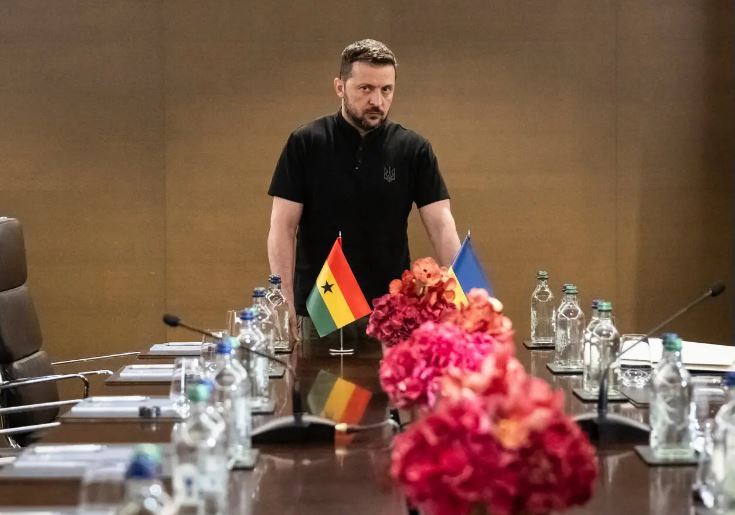At a two-day summit in Switzerland, numerous countries joined Ukraine in urging “dialogue between all parties” to bring an end to the ongoing war with Russia.
The summit, held in a Swiss Alpine resort, drew dignitaries from about 90 countries, though Russia was notably absent. Due to Russia’s exclusion, China and Brazil also declined to participate. At the conclusion of the meeting, delegations signed shared principles, including prisoner exchanges along with nuclear safety.
With the war between Ukraine and Russia entering its third year and no clear path to military victory for either side, some world leaders are advocating for negotiations and compromise. This sentiment was echoed by India, Saudi Arabia, South Africa, Turkey, and others at the summit.
Nevertheless, Zelensky has consistently argued that a lasting peace in Ukraine can only be achieved through Russia’s complete withdrawal. He stated that once the international community formulates a peace plan, building on the summit’s conclusions, “then this approved plan will be passed to representatives of the Russian Federation.”
For Ukraine, the summit was crucial in building global support for Zelensky’s vision of ending the conflict, which includes demands for reparations and justice for Russian war crimes. Ukraine specifically asked Switzerland to host the summit and worked diligently to bring as many world leaders as possible to the event.
Ukraine’s Western allies have remained relatively quiet about possible peace talks with Russia. Ursula von der Leyen, the president of the European Union’s executive branch, noted that Russia could participate in peace efforts only if it committed to United Nations principles like territorial integrity.
Swiss officials suggested that building engagement with Russia on specific priorities discussed at the summit, such as ensuring safe shipping in the Black Sea and the release of prisoners of war, could be a way forward.
The United States, Ukraine’s main ally, was represented at the summit by Vice President Kamala Harris, who departed after the first day. On Sunday, President Biden’s national security adviser, Jake Sullivan, told delegates that the summit had set the stage for future negotiations but did not elaborate on when or how they might occur.
Diplomatic backing could strengthen Ukraine’s position in eventual peace talks, but battlefield developments will undoubtedly influence any settlement. A Russian offensive that began in the winter appears to be losing momentum, having shifted the front line by only about 15 miles to the west of Avdiivka in the Donbas region.
Meanwhile, American ammunition and weaponry are aiding Ukraine’s efforts. Following months of delay by Congress in approving aid, these resources are now reaching the battlefield. Ukraine is expected to receive its first F-16 fighter jets soon, though their impact will be gradual as pilots gain combat skills in the aircraft.
Zelensky indicated he would continue his diplomatic efforts, preparing for a second summit where a peace plan could be presented to Russia. He mentioned that Ukraine is already in talks with countries interested in hosting such a meeting.
However, Russia has shown little interest in engaging with Zelensky’s diplomatic initiatives. Kremlin spokesman Dmitri S. Peskov dismissed the summit in a television interview, stating, “they’re not going to be talking about peace.”
The ongoing conflict and the summit’s outcomes highlight the complexities of achieving peace in Ukraine. Despite international calls for dialogue, the path to a resolution remains fraught with challenges, as both sides hold firm to their positions.

